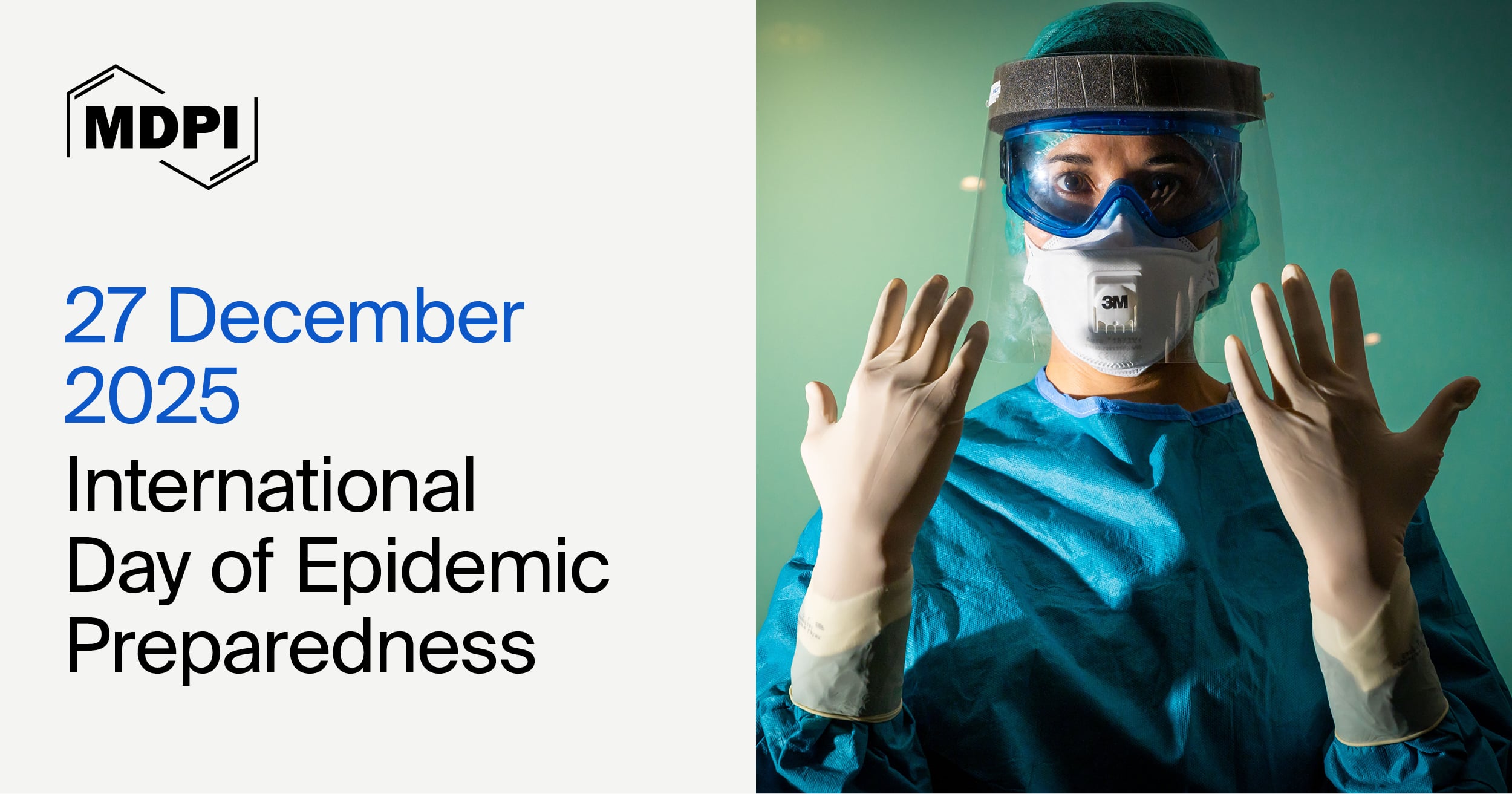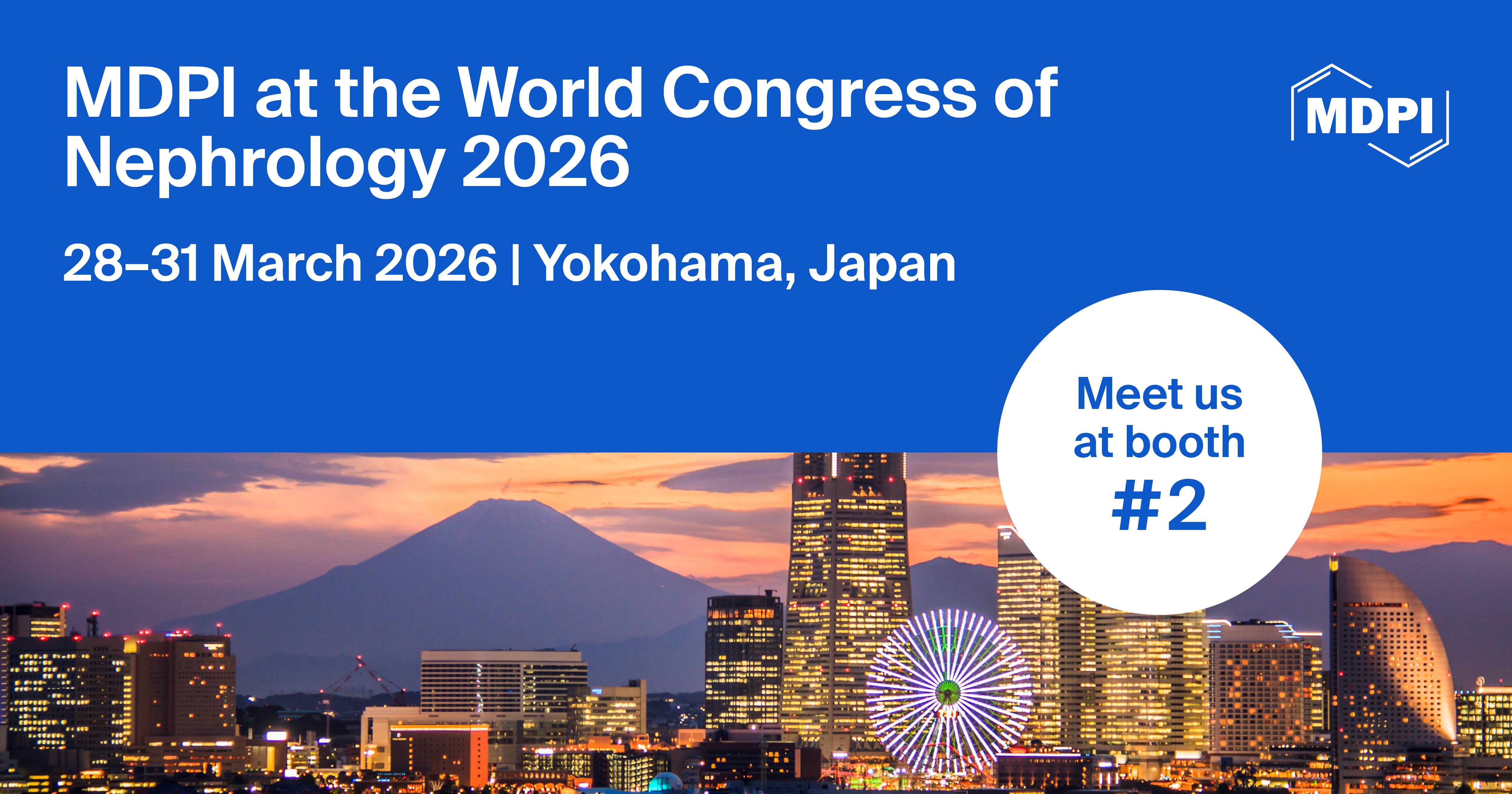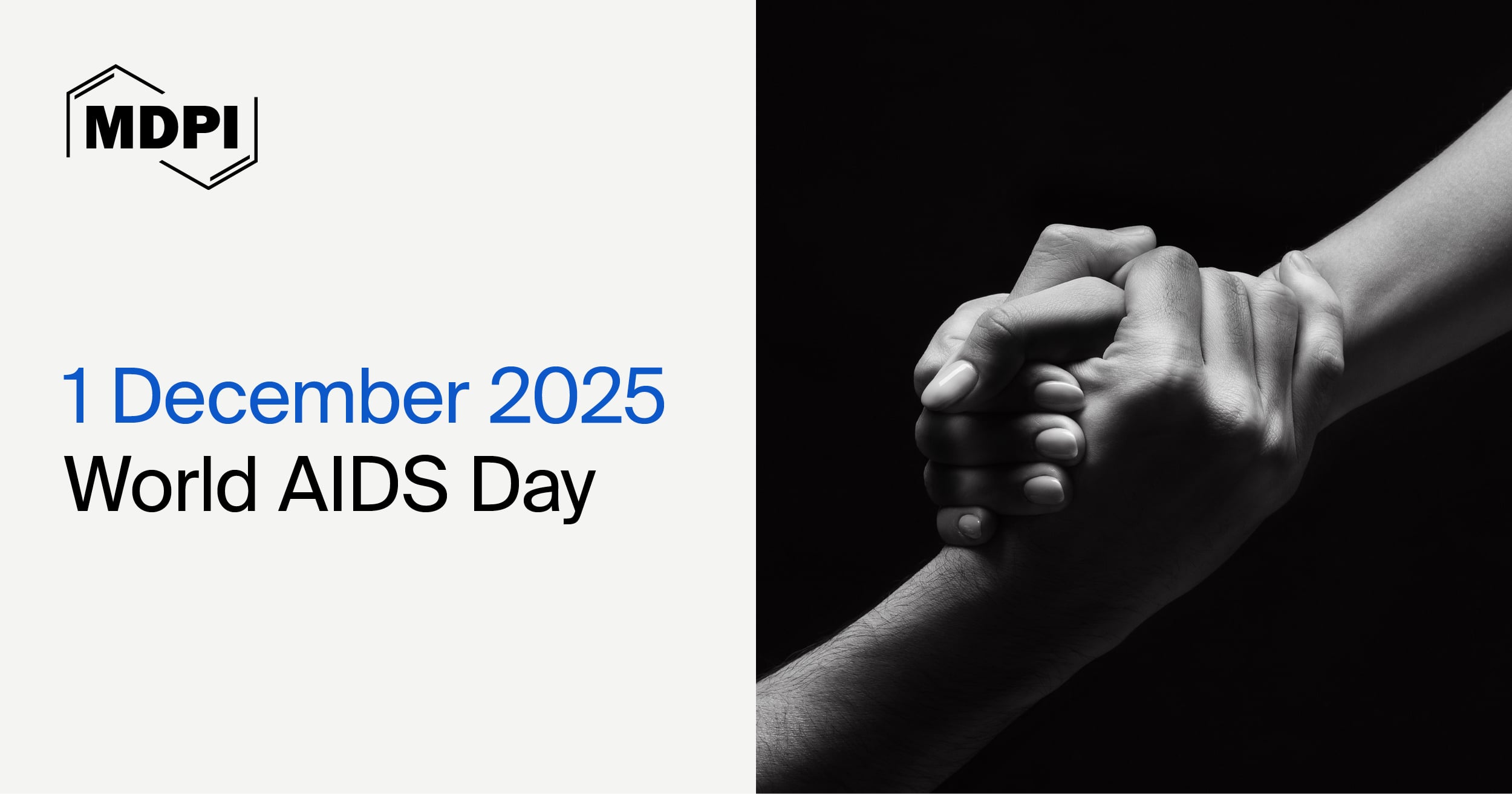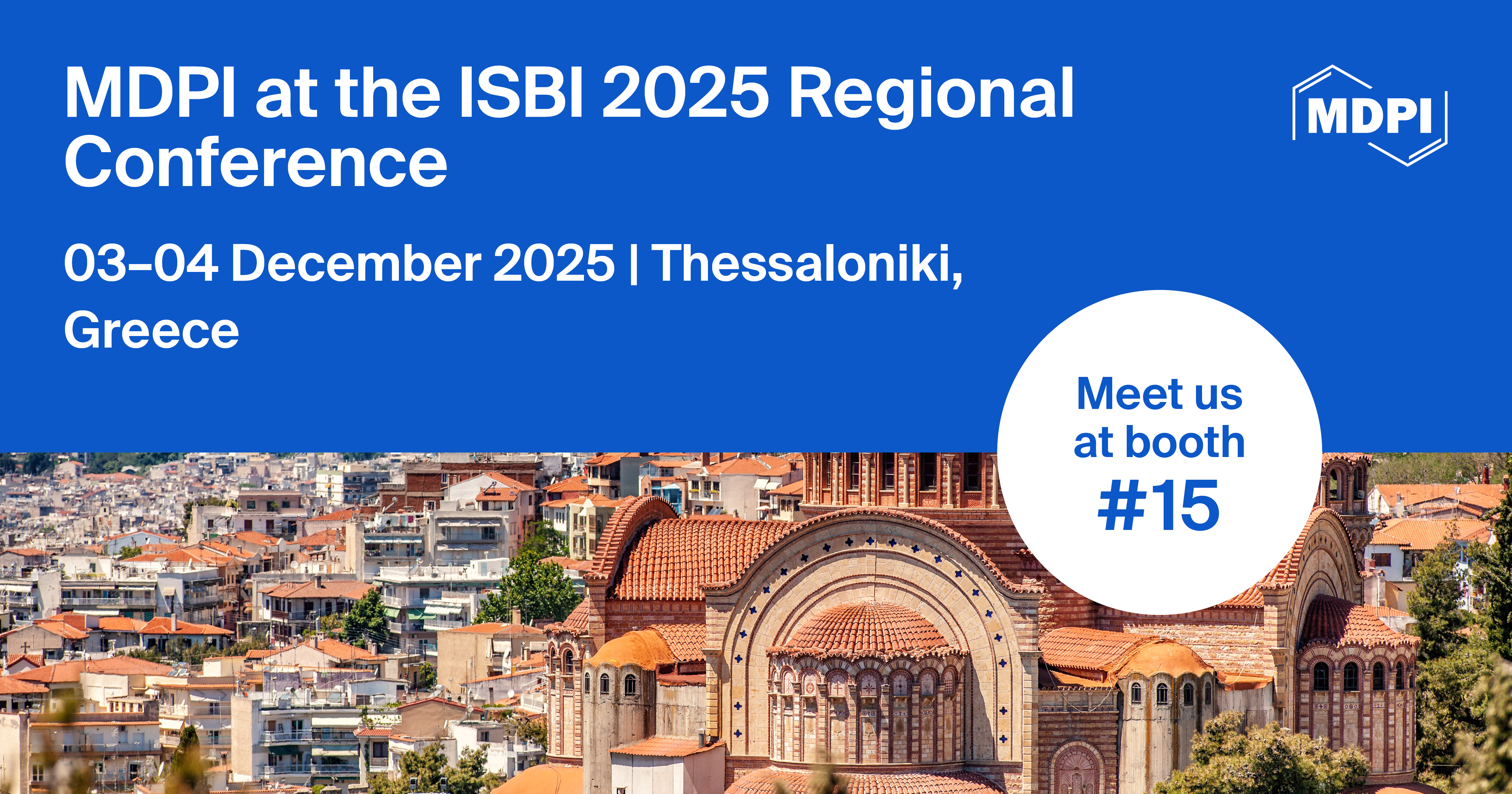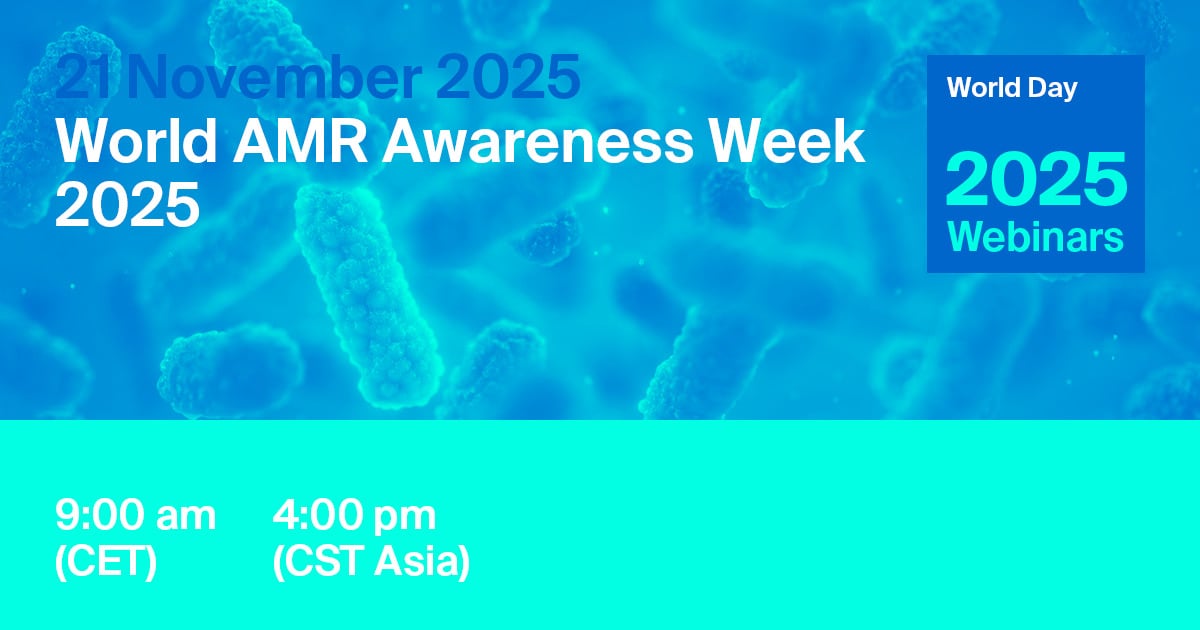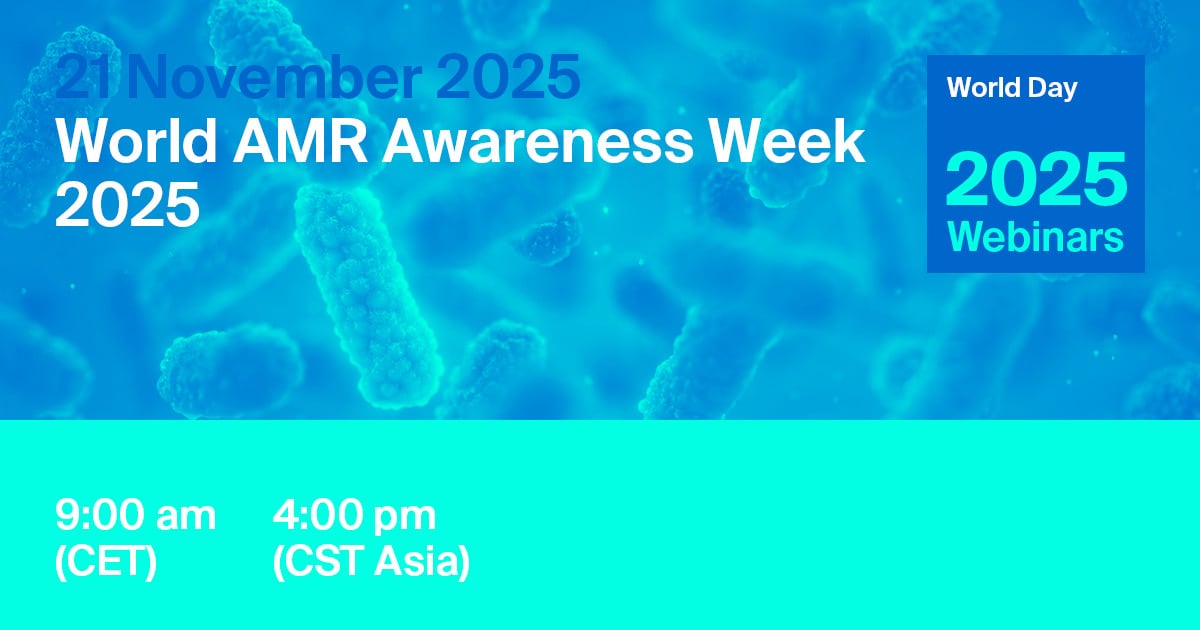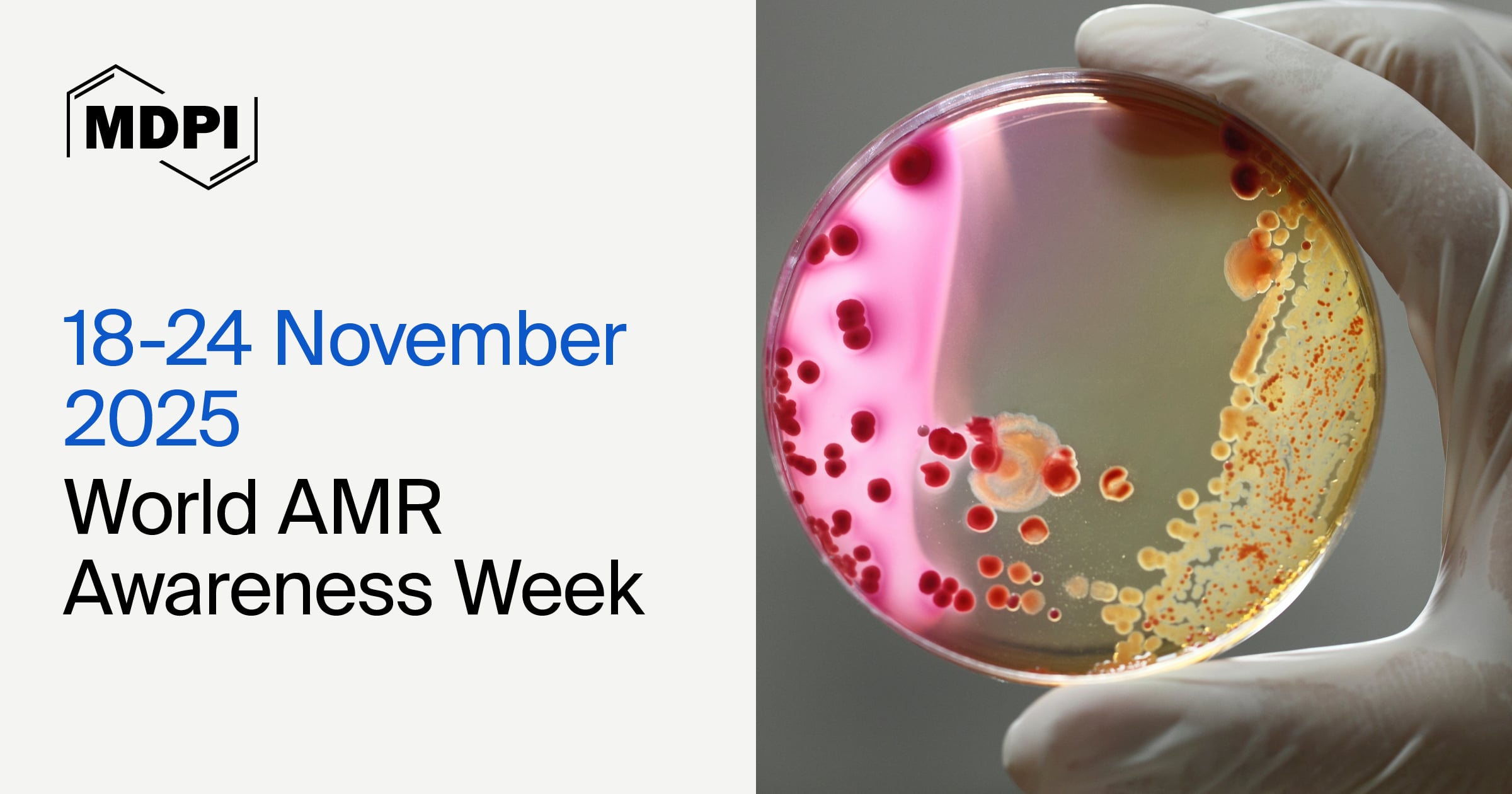- 3.0Impact Factor
- 3.7CiteScore
- 23 daysTime to First Decision
News & Conferences
Latest News & Announcements
Latest Conferences
Propose a Conference Collaboration
Promote and publicise your upcoming conference with MDPI.
All News & Conferences
News & Announcements
International Day of Epidemic Preparedness, 27 December 2025
25 December 2025
News & Announcements
Meet Us at the ESCMID Global 2026, 17–21 April 2026, Munich, Germany
19 December 2025
News & Announcements
Meet Us at The World Congress of Nephrology 2026, 28–31 March 2026, Yokohama, Japan
18 December 2025
News & Announcements
Article Layout and Template Revised for Future Volumes
11 December 2025
News & Announcements
Meet Us at the 146th Annual Meeting of the Pharmaceutical Society of Japan (Osaka), 26–29 March 2026, Osaka, Japan
9 December 2025
News & Announcements
World AIDS Day, 1 December 2025
1 December 2025
News & Announcements
Meet Us at the 2025 ISBI Regional Conference, 3–4 December 2025, Thessaloniki, Greece
21 November 2025
News & Announcements
MDPI Webinar | World Antimicrobial Resistance (AMR) Awareness Week 2025, 21 November 2025
19 November 2025
MDPI Conference
MDPI Webinar | World Antimicrobial Resistance (AMR) Awareness Week 2025, 21 November 2025
21 - 21 November 2025
News & Announcements
World AMR Awareness Week—“Act Now: Protect Our Present, Secure Our Future”, 18–24 November 2025
19 November 2025
News & Announcements
World Diabetes Day, 14 November 2025
14 November 2025
News & Announcements
MDPI Launches the Michele Parrinello Award for Pioneering Contributions in Computational Physical Science
6 November 2025
of 21


